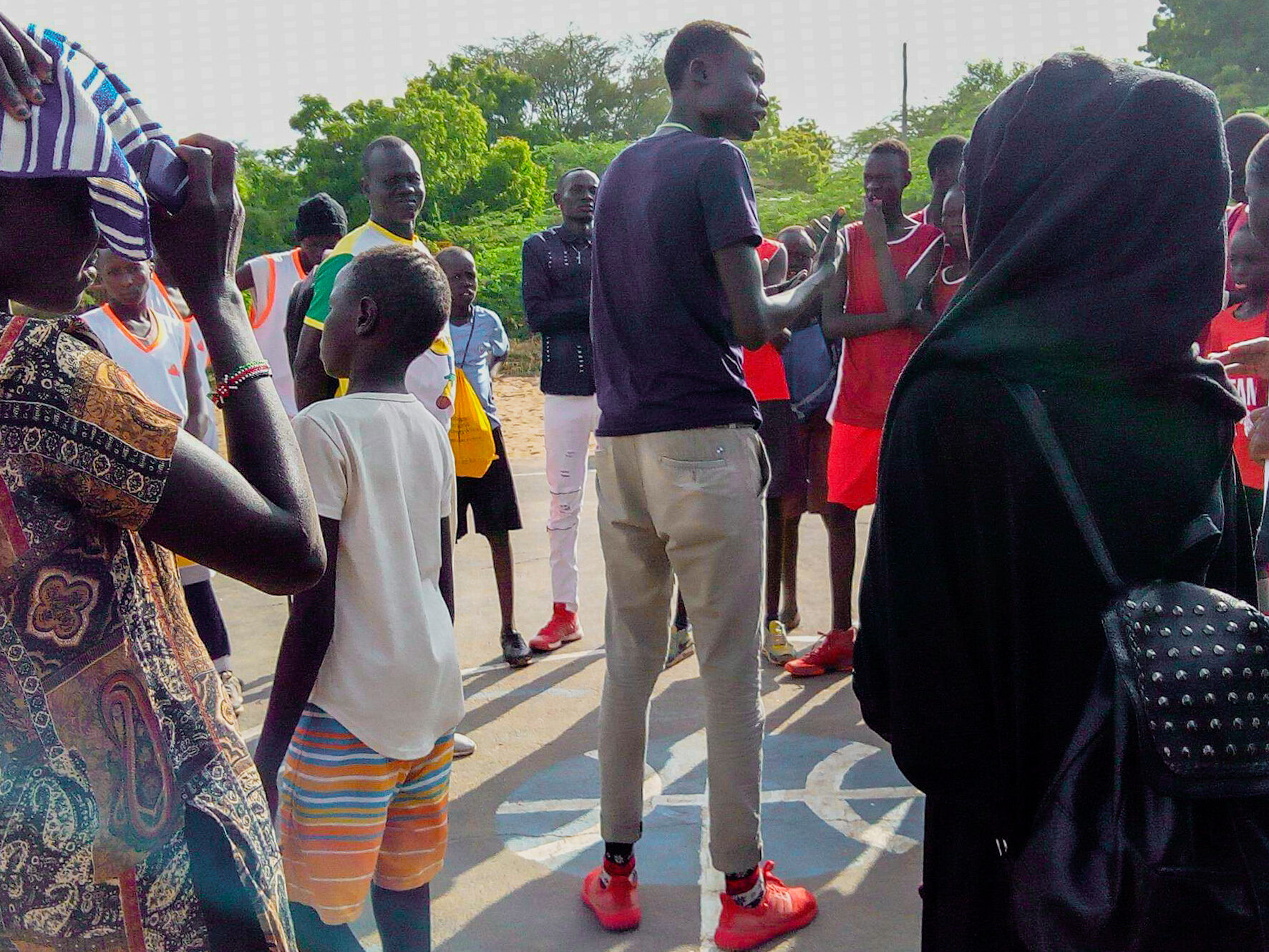Nhial Deng is passionate about transforming life for young refugees like himself. He was born in Ethiopia in 1999 to parents who had fled the conflict in South Sudan.
As a young boy he developed an interest in journalism. “My dad had a small radio,” says Nhial. “And the other men from the neighborhood would join him to listen to news from South Sudan. I would be chased away as soon as the men came but I would go and hide behind the house and listen.”
The men would discuss the war in South Sudan and talk about other world issues.
“That inspired my passion in journalism, so I started imitating the news broadcaster, anytime they broadcast the news.”
From a very young age, Nhial developed an interest in journalism and was able to pursue that interest through FilmAid in Kakuma, Kenya.
FilmAid Opens a Door
When he was 11, Nhial’s village was stormed by armed militias and his father sent him to Kakuma, a refugee camp in Kenya. In Kakuma, Nhial continued his studies and started a high school journalism club. He discovered FilmAid, which provides young people in vulnerable communities with the skills and confidence they need to advocate and tell their own stories.
“We learned about the camera, we learned how to shoot, we learned how to write news stories, we learned how to push our stories,” Nhial said. “We learned also business and how to use our skills to earn a living.”
Nhial Deng, center, credits FilmAid with helping him on a journey to amplify the voices of
refugees and underserved communities. Photo Credit: Nhial Deng
Filmmaking with Purpose
Nhial is particularly proud of a story he and his fellow students worked on about a young Turkana girl named Nadikil. Nadikal wanted to become a doctor but was being forced by her parents to marry a wealthy man; her family needed the money to feed themselves.
“I decided to talk to the people in Nadikal’s community to understand their culture, so we don’t misrepresent them. We didn’t want to look at the father as ‘bad’ because he had factors that might influence his decision,” said Nhial. “I think it’s looking at how I can assure I’m not speaking for Nadikal’s community – I’m just trying to amplify their voices.”
Because of the story, a friend of Nadikal approached the local chief, who arrived in the middle of the wedding ceremony and stopped the event. The chief highlighted the importance of sending girls to school and noted that the Kenyan constitution prohibits early and forced marriages. This sparked both negative and positive reactions from the guests, but Nadikil’s parents listened to the chief and decided to send their daughter back to school.
A New Beginning for Nhial: University Abroad
To continue his education, Nhial set his sights high. Amid the difficulties and setbacks of navigating COVID-19 pandemic in a refugee camp, and despite unreliable internet access, he managed to complete applications and secured admission to his dream school – the highly competitive University of California at Berkeley.
He credits FilmAid with helping him on that journey. “I feel the FilmAid program built my self-confidence, it built how I do my advocacy by trying to make sure that I include the other voices of people that I talk to,” says Nhial. “It also helped me to by being able to engage in conversations intellectually by improving my communication skills.”
As he navigated the challenges of moving halfway around the world, paying for, and supporting himself in school in California, another opportunity emerged: Huron University in Canada offered him a full scholarship and living expenses. Nhial will enroll at Huron in the fall.
After university, Nhial plans to keep advocating for young refugees, who he says have huge untapped potential. “I want to make sure that I’m that person that fights to make sure our voices are on the table. We are not just on the receiving end [of aid] but also making sure we build things from the start.”


